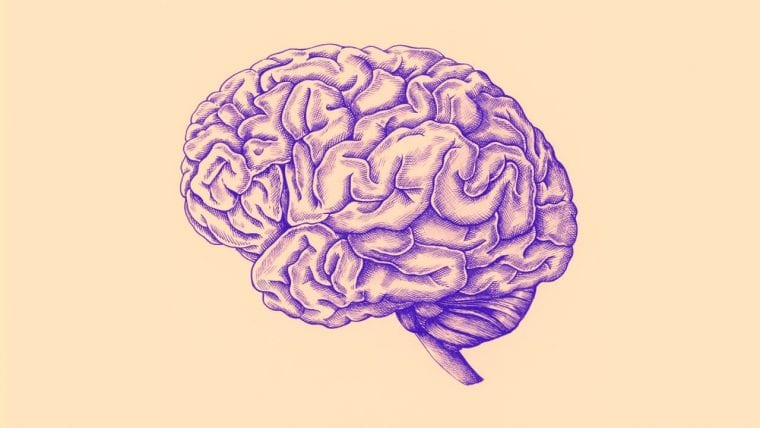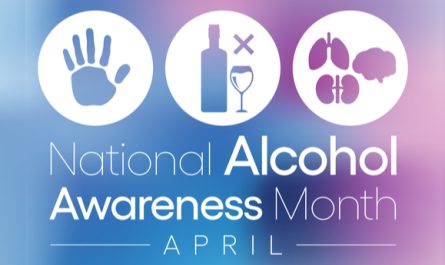Alzheimer’s and Brain Awareness Month
Alzheimer’s disease, a neurological condition that worsens with time and affects memory, thinking, and behavior, is a major global public health issue. June is designated as Alzheimer’s and Brain Awareness Month in an effort to advance knowledge, increase awareness, and fund research for these and other disorders connected to the brain. People, groups, and communities come together to raise awareness of the effects of Alzheimer’s disease and to promote better care, treatment, and prevention during this month. Let’s examine the significance of Alzheimer’s and Brain Awareness Month and consider how we can all work together to improve the lives of those who are impacted by this terrible disease.
Alzheimer’s disease is a degenerative brain condition that mainly affects older persons. It was initially discovered around 1906 and was named after Dr. Alois Alzheimer. It is characterized by the buildup of plaques and tangles in the brain, which causes cell death and degeneration. Memory loss, confusion, personality changes, difficulty speaking and solving problems, and difficulties carrying out daily tasks are all possible as the condition progresses. Alzheimer’s disease presents serious challenges not just to those who have been diagnosed but also to their families and carers, underscoring the urgent need for more education and assistance.
For early intervention and effective therapy, it is essential to recognize the initial symptoms and signs of Alzheimer’s disease. The quality of life for those who have Alzheimer’s can also be improved by a variety of therapy choices that can help with symptom relief.
Alzheimer’s disease symptoms:
- Memory Loss: Memory loss, particularly in the early stages, is one of the defining signs of Alzheimer’s disease. People could have trouble remembering recent discussions, events, or information.
- Confusion and disorientation: Alzheimer’s disease frequently causes confusion about time, place, and individuals. People could become disoriented in familiar surroundings and have trouble identifying acquaintances or family.
- Language and Communication Issues: People with Alzheimer’s may have trouble understanding others, finding the correct words to use, or expressing their thoughts. They might have trouble using terminology and keeping up meaningful dialogues.
- Poor Decision-Making and Judgement: Alzheimer’s disease might affect a person’s capacity for making wise judgments and decisions. They might have weak money management abilities, fall for con artists, or make foolish decisions.
- Mood and personality changes: Alzheimer’s illness frequently causes personality changes. People may behave in ways that are unusual for them or suffer heightened anxiety, depression, impatience, or agitation.
- Daily Task Difficulties: As Alzheimer’s disease progresses, routine activities like getting dressed, taking a bath, cooking, or handling money might become difficult and require assistance.
The Importance of Brain and Alzheimer’s Awareness Month
The social, emotional, and financial effects of Alzheimer’s disease on people and society at large are discussed during Alzheimer’s and Brain Awareness Month. Its objectives are as follows:
- Raising Awareness: By designating a full month to the promotion of brain and Alzheimer’s awareness, we can inform the public about the prevalence, risk factors, symptoms, and resources that are accessible for the disease. Greater knowledge promotes comprehension, lessens stigma, and promotes early identification and intervention.
- Supporting Research: During Alzheimer’s and Brain Awareness Month, there is a chance to call for more money and backing for projects that try to better understand the causes, safeguard against, and treat Alzheimer’s disease. Research advancements are essential to creating efficient treatments and, ultimately, discovering a cure.
- Empowering Carers: People with Alzheimer’s disease depend heavily on their carers. By offering information, education, and respite services this month, we can honor and support carers. Providing carers with the tools and resources they need to care for their loved ones as effectively as possible ensures their empowerment.
- Promoting Brain Health: The scope of Alzheimer’s and Brain Awareness Month goes beyond the condition itself. It serves as a reminder of how crucial it is to preserve brain health over the course of our lives. We can support brain health and maybe lower the risk of cognitive decline by adopting healthy lifestyle practices such as frequent exercise, a balanced diet, mental stimulation, and social involvement.
The quality of life for those who have Alzheimer’s can also be improved by a variety of therapy choices that can help with symptom relief. Options for treatment include:
- Medication: Several drugs that have been approved by regulatory agencies, such as memantine and cholinesterase inhibitors like donepezil and rivastigmine, can help manage cognitive symptoms and improve memory and thinking.
- Non-pharmacological therapies are essential in the management of Alzheimer’s disease. These include behavioral and cognitive interventions. Memory exercises, scheduled hobbies, and cognitive stimulation can all help to maintain cognitive function and enhance general well-being.
- Supportive Care: It’s crucial to give people with Alzheimer’s a safe and supportive atmosphere. Families and carers are essential in helping with daily tasks, establishing a routine that is familiar, and fostering a peaceful and cozy environment.
- Social Engagement: Promoting social connection and involvement in worthwhile pursuits can help people with Alzheimer’s disease maintain their cognitive abilities, lessen isolation, and improve their general quality of life.
- Healthy Lifestyle: Living a healthy lifestyle can help you manage the symptoms of Alzheimer’s disease. Maintaining social ties, engaging in regular exercise, eating a balanced diet high in fruits, vegetables, and omega-3 fatty acids, and exercising regularly can all help the brain.
- Support Groups and Counseling: Both people with Alzheimer’s and those who care for them can benefit from joining support groups or getting counseling to get emotional support, advice, and coping mechanisms.
Participation: Making a Difference
Several ways exist for people, groups, and communities to actively take part in Alzheimer’s and Brain Awareness Month, such as the following:
- Educate: Learn about the warning signs, symptoms, and effects of Alzheimer’s disease. Educate Both Yourself and Others. To spread awareness and foster understanding, educate your friends, family, and coworkers.
- Support Alzheimer’s Organizations: You can help Alzheimer’s research and support groups by making a donation, offering your time, or taking part in fundraising activities. These organizations offer beneficial tools, services, and advocacy for people with Alzheimer’s disease and their families.
- Host awareness events: Organize community events, lectures, or workshops to inform people about Alzheimer’s disease, good brain health, and available resources. These gatherings provide a community of support, dialogue opportunities, and understanding.
- Wear Purple: Don’t forget to wear purple—the color that represents Alzheimer’s and Brain Awareness Month—to show your support. Encourage others to wear purple to show their support and sympathy for individuals who are afflicted by the disease.
- Share Your Story: If you or a loved one has been affected by Alzheimer’s, talking about it can help spread awareness and reassure those who are going through similar difficulties. The community can be motivated, informed, and empathetic by reading your story.
Alzheimer’s and Brain Awareness Month puts emphasis on the importance of the need for ongoing research into Alzheimer’s disease’s causes, symptoms, and treatments. We can work towards a time when Alzheimer’s no longer places such a heavy strain on people and society by collectively increasing awareness, funding research, empowering carers, and encouraging brain health. Let’s unite during this month and beyond to support the cause, push for reform, and promote a society where everyone’s ideas are valued and safeguarded.




